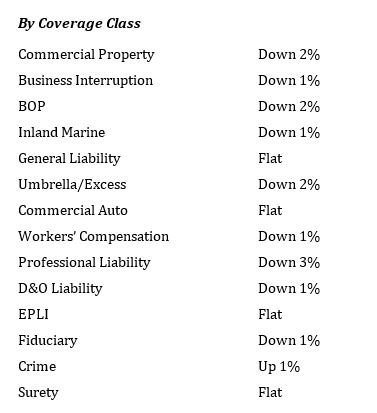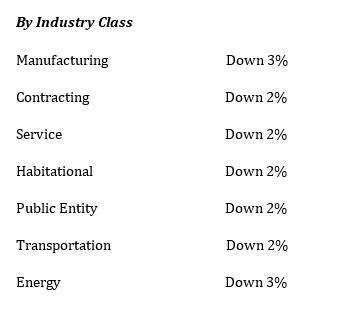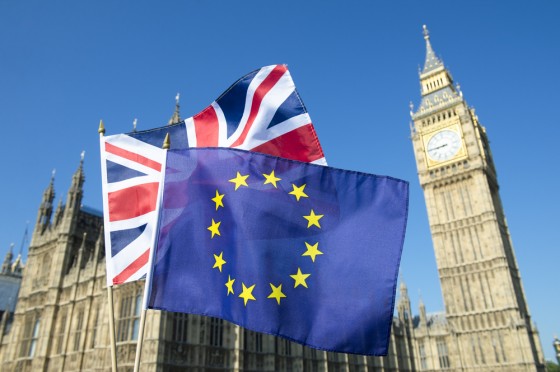
Britain’s unexpected vote to leave the European Union has left many unanswered questions, some of which may not be resolved for years as Britain and the EU iron out the details of the split. Meanwhile, in the wake of the announcement, oil prices dropped, global stock markets have taken a significant hit, the Euro and the British Pound plunged.
Fitch said today that overall, Britain’s decision is broadly “credit negative” for most U.K. sectors.
During a Eurasia Group conference call this morning, Europe associate Charles Lichfield asserted, “The U.K. has lost relevance to Washington.” In the past, he explained, the United States has worked closely with Britain on many European issues, but will now bolster relations with Germany, Spain and other countries, bypassing Britain.
According to the Wall Street Journal:
The move triggered a selloff across markets dragging down the British pound, commodities and shares in U.K.-listed banks, utilities and oil-and gas companies including BP PLC and Royal Dutch Shell PLC, whose shares fell 6.2% and 4.9%, respectively.
A spokesman for Shell said the company will work with the U.K. government and European institutions on navigating a British exit from the EU, known as Brexit. The Bank of England announced it was prepared to use its $371.85 billion war chest to stabilize the market.
The uncertainty in the marketplace after the referendum could hurt oil companies by exacerbating the already-challenging environment created by lower oil prices.
In the aftermath of the vote, U.K. Prime Minister David Cameron announced plans to step down.
The referendum is expected to jolt the U.S. economy, likely driving up the value of the dollar.
Members of the insurance industry and their buyers are wondering what the impact on Lloyd’s and the London market will be. So far, Lloyd’s has maintained a cool façade.
“I am confident that Lloyd’s will stay at the center of the global specialist insurance and reinsurance sector, and I look forward to continuing our valuable relationship with our European partners,” Chairman John Nelson said in a statement on the vote. “For the next two years our business is unchanged.
Lloyd’s has a well prepared contingency plan in place and Lloyd’s will be fully equipped to operate in the new environment.”
The Financial Times, however, expects the insurance sector to be “hit hard” by the vote and that the impact could have a negative impact on the London market.
According to the FT, “One of the big attractions to insurers of operating via Lloyd’s is that it has passporting rights into the EU. Many of the insurers who do business there at the moment say that after a Brexit they will simply shift some of their business to subsidiaries within the EU, bypassing the Lloyd’s market in the process.”
Brexit is also expected to have more impact on the life insurance market than property/casualty. “The impact on the non-life insurers was more muted, given that many of them have little cross-border business and hold very conservative investment portfolios.
Shares in Direct Line, RSA and Admiral were all down in mid-single digits,” according to the FT.

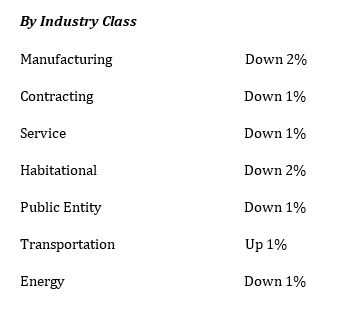
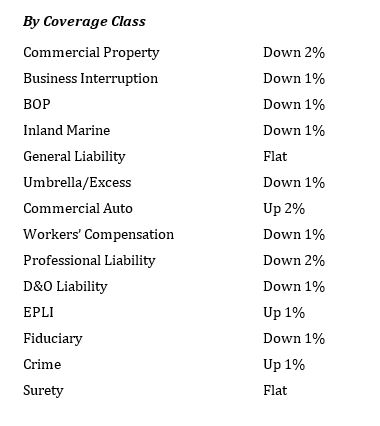




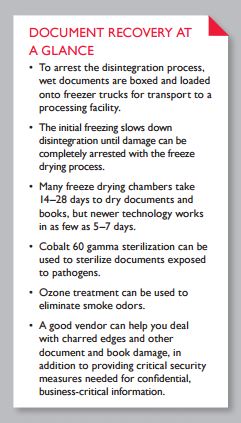 stems; they may have flooding from sprinklers, which, mixed with soot, can cause other complications; there may be smoke damage, which can by carried throughout a building through air conditioning systems; and there can be chemical residue from fire suppression systems.
stems; they may have flooding from sprinklers, which, mixed with soot, can cause other complications; there may be smoke damage, which can by carried throughout a building through air conditioning systems; and there can be chemical residue from fire suppression systems.

